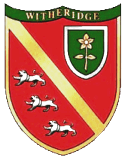

|
By clicking on the subject of your choice in the sub index below, you will be taken directly to your selected page, which will open in the same window. To view further pages within this section, you can either use the next button at the foot of the page, which will move you through the section one page at a time. You can also return to this index page by using the Previous button, again at the foot of the page, or you can use also make use of your back button. You can of course also open all links from the index page in a separate window using the right click facility on your mouse and selecting "Open Page in New Window". There is also a fifth option of using the Site Index button at the foot of the page to navigate from the main index page. Five methods a all designed to make navigating this site as easy as possible. Henry III became king in 1216 amid a rebellion backed by the future Louis VIII of France, but this was defeated the following year by the Kings forces; he was nine, but it was a further eleven years before the minority government ended and he assumed personal control. Henry made little attempt to recover lost English possessions on the continent (he surrendered them with the Treaty of Paris in 1259) and his financial policies, in particular his commitment to the Papacy and the support of his brother, Richard of Cornwall, as the King of the Romans, made him greatly unpopular with his barons and administrators. Recouping John's French losses was more difficult. After a series of diplomatic manoeuvres and military expeditions, in 1259 Henry and Louis IX signed the Treaty of Paris. Henry was confirmed as lord of the south western region of Gascony, under the over lordship of the King of France; he renounced all other claims to French territory. Henry's Queen and his stepmother were both French; his court was hospitable to their relatives. His reliance on foreigners and the cost of his campaigns triggered a baronial rebellion led by Simon de Montfort. In 1259 a part-elected council of aristocrats was established to govern the country. Five years later open war broke out; de Montfort took Henry prisoner, but was himself defeated and killed in 1265 by the King's son Edward. Restored to the throne, Henry governed in a spirit of moderation, implementing many of the rebels reforms. When he died in 1272 Edward's succession was unchallenged. STORY REVEALED BY THE LATE REV J A S CASTLEHOW 1243: A Witheridge couple, Henry le Hoper and his wife Agatha were arrested at Chulmleigh after stealing goods. They were put in prison there, but killed their gaoler while he slept at night, They escaped and Henry sought sanctuary in St Mary's Cheldon, confessed and abjured the realm, his chattels worth (9/5) his wife Agatha fled, let her be outlawed she had no chattels. (The Pleas of the Crown of Exeter Assize No. 175) Henry III reign. 1280: In this year Bradford Tracy was the scene of a remarkable murder case, in which two women, Alice and Margery, combined to kill Alice's husband. They were tried and found guilty; Margery was hanged, and Alice was sentenced to be burnt, but accomplices helped her to escape from Exeter Prison and take sanctuary in Heavitree Church. The Middle Ages (1216 to 1347) Monarchs during this period Henry III (1216-72)Edward I, Longshanks (1272-1307) Edward II (1307-27) Edward III (1327-77) Previous Last Edited 03/07/2006 Copyright © 2000-2006 Witheridge Unless otherwise indicated on the page in question, the photographic images reproduced on this site belong to the Witheridge Archives, and, as such may not be reproduced for commercial purposes without written permission. However, you are welcome to use any of the photographs belonging to the archive for personal and/or non-commercial use. Any material shown as not being owned by the archive may not be reproduced in any form without first receiving written permission from the owner of the material in question. |

